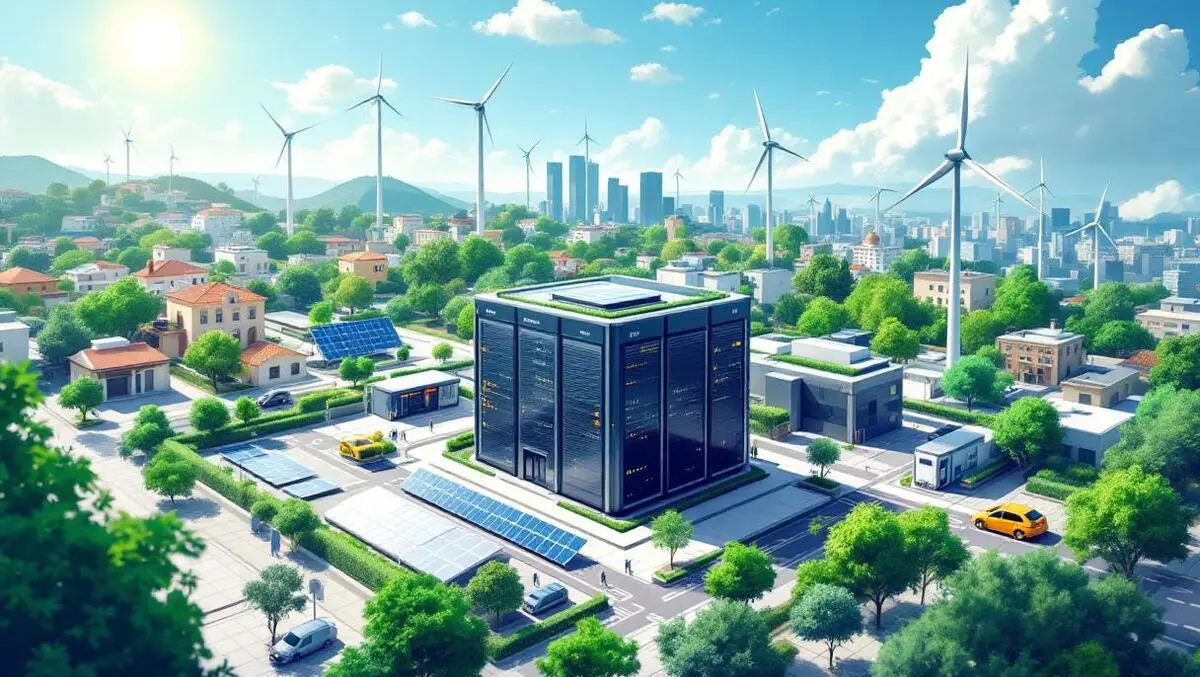
Siemens opens Madrid data centre hub to boost Iberian digital growth
Siemens has announced plans to open a data centre hub in Madrid, supported by a team in Aragon, aimed at enhancing digital infrastructure across Spain and Portugal.
The newly established Madrid facility will become part of Siemens' global network of Competence Centres, alongside those in the Netherlands, United States, and India. The company stated that this move demonstrates its ongoing commitment to supporting the strategic role of the Iberian region in the development and adoption of artificial intelligence (AI), Internet of Things (IoT), 5G, and cloud technologies.
The expansion into Spain underscores the country's growing importance as a digital gateway for southern Europe. Sector analysts and industry reports indicate strong growth ahead for data centre services. According to Morgan Stanley, the number of data centres in Europe is expected to increase fivefold over the next ten years, with Spain positioned as a key hub due to its geographic location, robust connectivity, and access to renewable energy sources.
Spain DC's latest report, the State of the Data Center Sector 2024, predicts that Spain could draw up to EUR €13 billion in investment in the medium term, based on a conservative scenario. The sector's annual growth rate is estimated to surpass 20 percent, reflecting increasing demand for digital infrastructure across the region as businesses accelerate digital transformation.
Ciaran Flanagan, Global Head of Data Center Solutions at Siemens, highlighted the challenges and opportunities posed by rapid cloud and AI adoption. He said:
"The exponential growth of the cloud and AI workloads presents a significant business opportunity but also challenges, and we are committed to helping our customers streamline their operations, execute projects efficiently, and minimize costs, all while achieving their sustainability and availability goals. The launch of this hub in Madrid marks a key milestone on this journey."
The move comes as global data centre energy consumption continues to rise. The International Energy Agency projected that overall data centre power use reached 415 TWh in 2024, with this figure expected to more than double to 945 TWh by 2030. Siemens says its Madrid hub will offer support to the evolving sector by providing technologies that optimise efficiency and reduce consumption, leveraging digital twins, simulation tools, and advanced infrastructure management solutions.
Through the application of both real-world and digital approaches, Siemens aims to enable customised solutions for clients seeking to balance sustainability and system reliability. The Madrid opening builds on the company's previous establishment of a similar hub in the Nordic region, further reinforcing Siemens' ambitions to support Iberia's digital infrastructure and contribute to the European Green Deal's objectives.
Fernando Silva, CEO of Siemens Spain, emphasised the importance of the initiative for Siemens and the region. He said:
"The inauguration of this hub underlines the importance of the data center market for Siemens, both globally and specifically for Iberia. With this new infrastructure, we will multiply our network of technical experts supporting our customers in their requirement for sustainability, efficiency, and operational reliability of their data centers."
The team based in Madrid will be responsible for supporting a range of client needs, including power solutions, infrastructure management, automation, digital twin deployment, thermal optimisation, fire safety, physical security, microgrid integration, and lifecycle financial services. Siemens has indicated that its end-to-end service portfolio and partnerships will allow it to help data centre clients plan, build, operate, and expand their facilities, drawing on global expertise to meet local requirements.
The addition of Madrid to Siemens' list of international data centre hubs reflects a broader strategy to scale capacity, provide specialist technical support, and encourage economic growth in the region through the creation of skilled jobs and local expertise in digital infrastructure.


